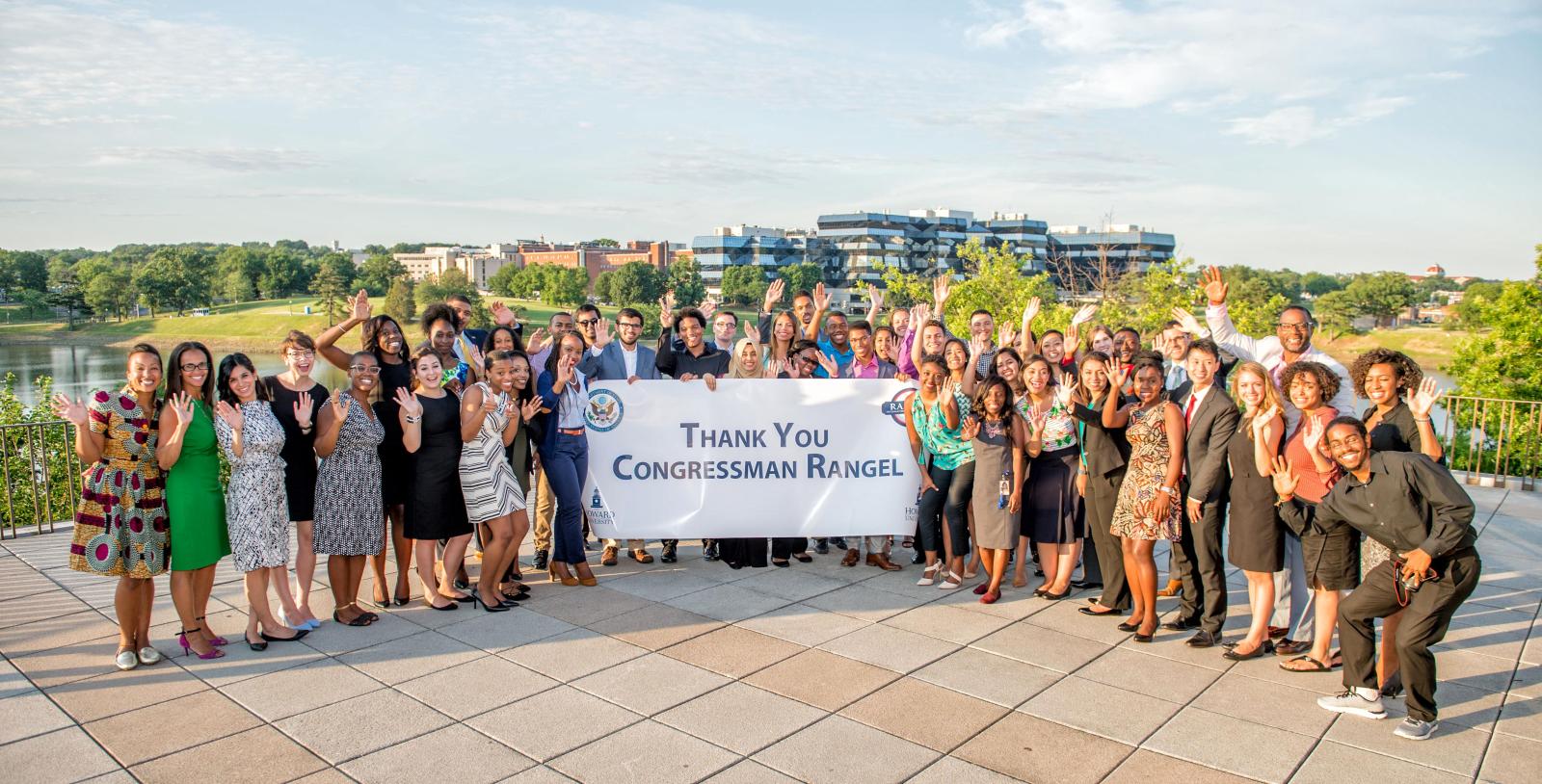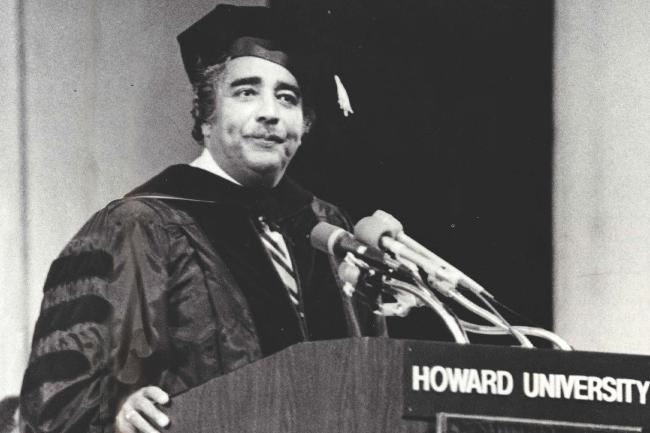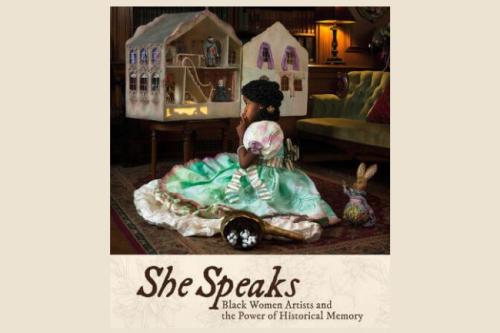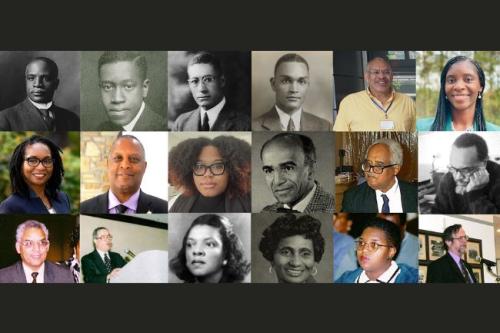Above Image: Congressman Rangel speaks at the 1988 Howard University Opening Convocation. Image taken from the 1989 "The Bison" yearbook. Photo courtesy of the Moorland-Spingarn Research Center.
Even among the elite institution that is the United States Congress, Charlie Rangel (LL.D. ‘88), was in a class by himself. A founding member of the Congressional Black Caucus, Rangel was equal part political strategist, pragmatic legislator, equity champion, charismatic colleague, and Army veteran. He rose through the ranks to become the first Black chairman of the supremely powerful Ways and Means Committee, which sets federal tax policy and is the only congressional committee specifically established by the U.S. Constitution. Born in New York City’s Harlem borough, which he would eventually represent as a congressman, he seemed to be as comfortable in the backrooms of the United States Capitol as he was in a booth in Harlem’s famed Sylvia’s restaurant or in the audience at the Apollo Theater.
Congressman Rangel passed away on May 26, at the age of 94.

Rangel’s relationship with Howard was longstanding. Former Howard President H. Patrick Swygert (B.A. ’65, J.D. ’68) was Rangel’s first administrative assistant, one of the leading positions in a Congressional office. Rangel was also a panelist on ABC’s “Politically Incorrect” show, hosted by Bill Maher, which was taped in Cramton Auditorium in 2001. In 2008, Rangel entered remarks into the Congressional Record lauding Howard’s successful capital campaign, which broke records for an HBCU.
In 1988, Rangel, then chairman on the House of Representatives Select Committee on Narcotics Abuse and Control, was Howard’s Opening Convocation speaker. In the 1980s, the country was being ravaged by crack cocaine epidemic, which caused death, addiction, and a spike in brazen, organized crime. Rangel used the occasion to advocate for an intensification of efforts to eradicate the country of drugs and to push back against drug legalization. According to the Hilltop, he also encouraged the students in the audience to “strive to make life better for the generations to follow.”
“I’m encouraging our kids to go to Howard, not to the hospital,” Rangel said.
Howard awarded Rangel an honorary Doctor of Laws degree during the convocation. In the resolution accompanying the degree, the university paid tribute to Rangel, calling special attention to his role in the drug war and his attempts to stop drug importation into the U.S. The university likened Rangel to a “20th century Joshua,” a reference to the Biblical figure who led the Israelites into the Promised Land, courageously winning battles through an obedience to God. The drug problem was, in the words of the resolution, a “scourge that threatens the very foundations of this society.”
“In an attempt to mobilize worldwide public opinion against the drug supplying nations, you have fought with every weapon at your legislative disposal, introducing amendments to use foreign economic and military aid as inducements to stop drug shipments before they reach these shores, and urging the Congress and The White House to focus their energies on this problem,” the resolution reads. “Because of the unparalleled service you have rendered to this nation and to our people, and because of the brilliant and effective role you continue to play in the Congress of the United States, Howard University takes a distinct pleasure in honoring you.”
In the aftermath of the September 11, 2001, terrorist attacks, it was clear to a bipartisan cadre of government officials that the country needed global diplomats which personified the respect America has for all its citizens, regardless of their race or sociocultural background. An important way to project that image was to ensure that the employees of the U.S. Department of State represented every aspect of American society. With this in mind, Congressman Rangel secured federal funding to establish what would become the Charles B. Rangel International Affairs Fellowship, based in part on a framework agreement developed by Swygert and former U.S. Secretary of State Madeline Albright. It was signed in the Treaty Room of the Harry S. Truman Building, and Rangel attended the ceremony. The funding was made law by U.S. President George W. Bush.
The Rangel Fellowship program is a U.S. State Department program collaboratively administered by the Bureau of Global Talent Management and Howard University’s Ralph J. Bunche International Affairs Center.
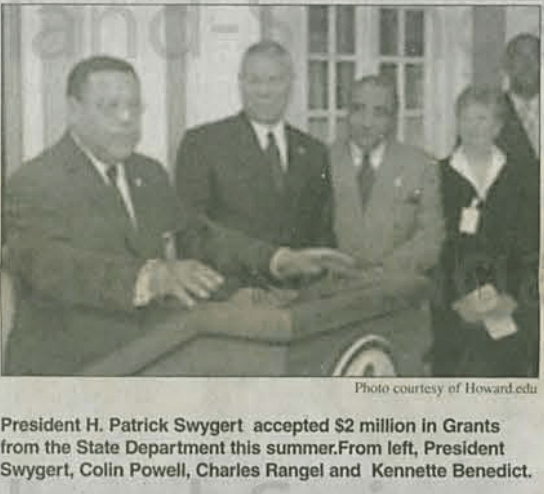
The need to enhance the U.S. State Department’s staff was so important that Rangel and Albright’s successor, the Bush Administration’s Secretary of State Colin Powell (LL.D. ’84), came to Howard to announce the funding in the summer of 2002. Secretary Powell said that it was critically important that the diplomatic corps, “send a message not just by doing what they do with great professionalism, but also by being who they are, just by walking into a room and showing that America is diverse. America respects all of its many, many citizens of whatever color, creed, or faith by personifying America in all of its beautiful diversity.”
"It’s all about the generation that follows and it’s all about the potential of this great country," Rangel said at the Howard event.
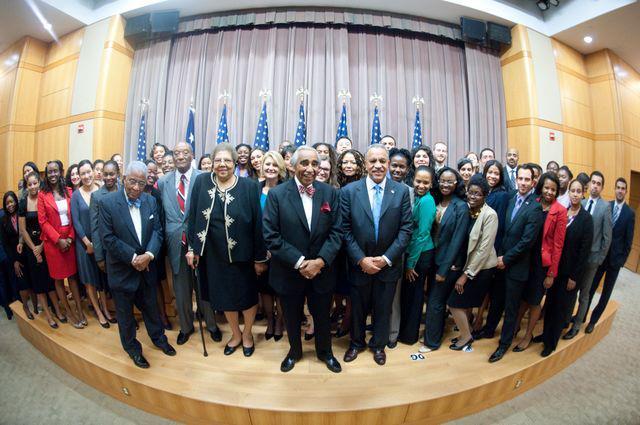
More than 600 talented students and professionals from around the country have participated in the Rangel Fellowship program, which provides college seniors or graduates who want to join the foreign service with internships, mentoring, and professional development, and engages undergraduates in summer programming to help them plan for careers in international affairs. Fellows have come from all 50 states and represent a broad cross-section of background, races, and cultures. Today, fellows and scholars are working in approximately 60 countries around the world, including many in Africa, Asia, Latin America, Europe, and North America. They help to safeguard the liberties of Americans living or traveling internationally, promote prosperity and development in local communities, enhance human rights, and perpetuate American values around the world. The scale of the program was significantly enhanced by former Secretary of State Condoleeza Rice, and then again during President Trump’s first term.
"Congressman Charles B. Rangel’s legacy is one of unwavering dedication to public service and principled leadership on the world stage."
“Congressman Charles B. Rangel’s legacy is one of unwavering dedication to public service and principled leadership on the world stage," said Tonija Hope (Ph.D. ’24), director of the Ralph J. Bunche International Affairs Center at Howard University. "His vision for the Rangel Program has transformed lives and careers, creating pathways for talented individuals to serve our country with distinction. We are honored to carry forward his mission and deeply grateful for the lasting impact he has made on the field of international affairs and on our nation.”
Biden administration Secretary of State Antony Blinken headlined an event in 2022 to mark the 20th Anniversary of the Rangel Fellowship, along with the 30th anniversary of the Thomas Pickering Fellowship, which Howard also administers. Together, the Rangel and Pickering Fellowships have increased the number of generalists in the foreign service from underrepresented groups by 33%, according to the U.S. Department of State’s official magazine.
“If you go anywhere in the corridors of this Department, USAID, around town, the halls of Congress, and you hear the names Pickering, Rangel, Payne, and now FAIT, you know what people are talking about,” Blinken said. “This has resonated throughout this town … because of the extraordinary people that have been able to participate in them and that have enriched our institution, enriched our foreign policy, enriched our development work.”
Howard University President Ben Vinson, III paid tribute to Rangel in a letter to the Howard community.
“It is with profound sadness, yet immense gratitude for a life extraordinarily lived, that we acknowledge the passing of the Honorable Charles B. Rangel (LL.D. ‘88), a true giant of American politics, a valiant public servant, and a lifelong champion for justice and equality,” Vinson said. “Congressman Rangel’s life was a testament to courage, resilience, and an unwavering dedication to the advancement of Black Americans and underserved communities. A decorated Korean War veteran, earning both a Purple Heart and a Bronze Star, his commitment to service extended far beyond the battlefield into the halls of Congress.”
“Congressman Rangel was more than a legislator,” he added. “He was a mentor, advocate, and inspiration to countless individuals. His sharp wit, unwavering voice, and steadfast commitment to civil rights and economic empowerment resonated deeply with the principles that define Howard University. His legacy is woven into the fabric of American progress, and his contributions will continue to inspire generations of leaders, especially those who walk the hallowed grounds of institutions like Howard.”
